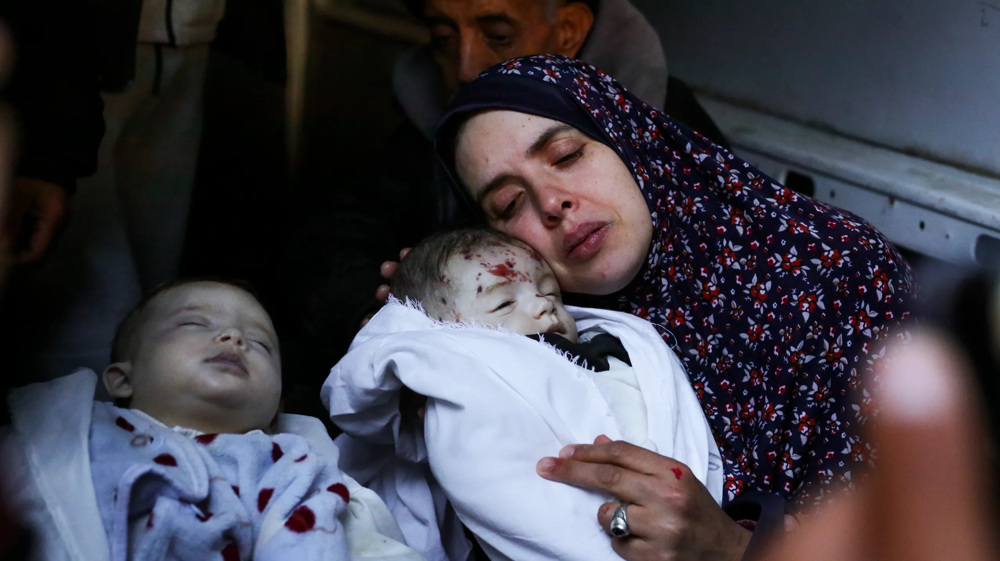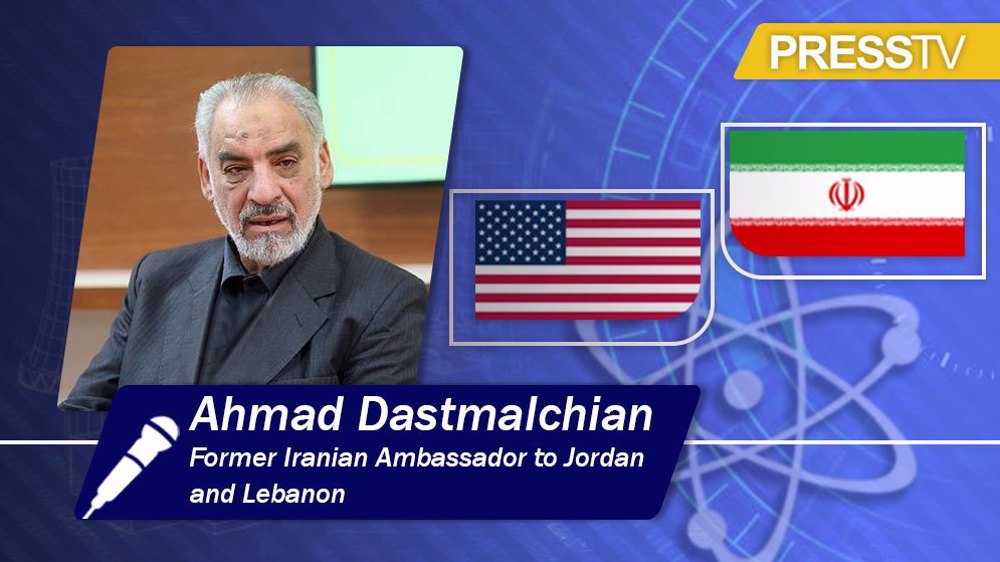Starvation of people in Gaza a war crime with devastating effects: Expert
By Alireza Hashemi
Starvation of people is a war crime with devastating effects that will be felt for generations, says a famine expert, urging urgent humanitarian intervention and restoration of essential services to avert further tragedy and alleviate the suffering of the people of the Gaza Strip.
In an interview with the Press TV website, Alex de Waal, a social anthropologist and researcher at Tufts University, US, said the starvation in the besieged Palestinian strip is “man-made.”
“The starvation of Gaza is man-made. It is a crime—certainly a war crime, possibly the crime of extermination, possibly the crime of genocide. Its effects will be experienced for generations,” he said.
De Waal is known for his work on humanitarian crises and famine and serves as the Executive Director of the World Peace Foundation at the Fletcher School of Law and Diplomacy at Tufts University.
He fears that the situation in Gaza has already surpassed the famine threshold, with people suffering extremely and risks of further deprivation and epidemic diseases causing escalating death rates.
“Because journalists are not permitted to enter Gaza and aid workers are not able to collect the necessary data, it is not possible to say for certain how grave the humanitarian crisis is. I fear that it has passed famine thresholds,” he said in a conversation with the Press TV website.
“Even if it has not, the suffering is extreme, and the risk of further deprivation, and new factors such as epidemic disease causing escalating death rates, are real.”
De Waal, who has written extensively on starvation and famine crimes and has been involved in various humanitarian efforts in Africa and elsewhere, said famine is not just about hunger and deaths from starvation but also a social trauma.
“Famine is not just an aggregate of hunger and deaths from starvation. It is also a social trauma. The experience of starvation, and of witnessing the starvation of others, is deeply traumatizing,” he said.
“The disruptions to the social fabric and the destitution and humiliation that it causes cannot be underestimated. People who have been through mass starvation feel that they have been stripped of their basic human dignity.”
He hastened to add that child malnutrition also has lifelong effects and the ongoing situation is bound to impact future generations of Palestinians.
“Children exposed to starvation while they are young grow up with reduced physical and mental capabilities, in addition to the loss of essential years of learning in school and at home, and emotional maturation. Children born to mothers who experienced starvation when they were little girls are also disadvantaged compared to their peers.”
Gaza crisis long in the making
De Waal further said the humanitarian situation in Gaza is the accumulated effect of years of the Israeli regime’s restrictions on local people there.
“The humanitarian catastrophe in Gaza is the direct result of the policies of Israel. Before October 2023, Israel had implemented tight control of all commodities entering the Gaza Strip, intending to restrict material support to Hamas and to the population in general,” he stated.
The expert noted that following the October 7 operation by the Palestinian resistance, Israel’s military reaction disregarded the basic principles of humanitarian law, namely distinction and proportionality.
He said the Israeli military onslaught has destroyed the means of survival of people in Gaza, and even killed humanitarian and health workers on a massive scale, far exceeding what can be considered proportionate collateral damage.
“The war crime of starvation is defined as the destruction of objects indispensable to survival, which includes not only food and food production and storage facilities, but also water and sanitation, health facilities, shelter, power (e.g., for cooking), and maternal care for children. All of these have been attacked and destroyed in a comprehensive and far-reaching campaign,” he stressed.
“In addition, Israel has restricted commercial and humanitarian supplies and operations. It has killed many humanitarian workers as well as health workers, who are protected under the Geneva Conventions.”
De Waal hastened to add that essential services need to be restored, and assistance must be properly distributed by experienced organizations like UNRWA.
“It is essential to restore essential services (water, sanitation, health), to ensure that the assistance provided is properly distributed (which requires a functioning local administration, and an experienced relief organization, such as UNRWA; it cannot be done by NGOs in an organizational vacuum); it requires therapeutic feeding and specialized treatment for malnourished children; and it requires safe areas where people can trust that they will not be attacked.”
He said the humanitarian situation in Gaza remains fragile and with the latest Israeli strikes in Rafah and other parts of southern Gaza, things have likely even become worse for the poor Gazans.
“Israel mounted a military offensive in southern Gaza, where the majority of the population had congregated. This unleashed new destruction, forced a new round of mass displacement,"
Why Iran’s Leader refused special protection, leading from the front until last breath
Hezbollah strikes Israeli surveillance, military base in Golan Heights, occupied lands
Iran holds funeral for tens of schoolgirls murdered in US-Israeli aggression
Iran destroys main command building, headquarters of US air base in Bahrain
US embassy in Saudi capital set ablaze after drone attack: Riyadh
Saudi Arabia, Qatar foiled Mossad bombing plots on their soil: Tucker Carlson
Iran's firm response will last as long as attacks do: Envoy
Shedding of American, Iranian blood on ‘Israel firsters’: Iran FM
















 This makes it easy to access the Press TV website
This makes it easy to access the Press TV website